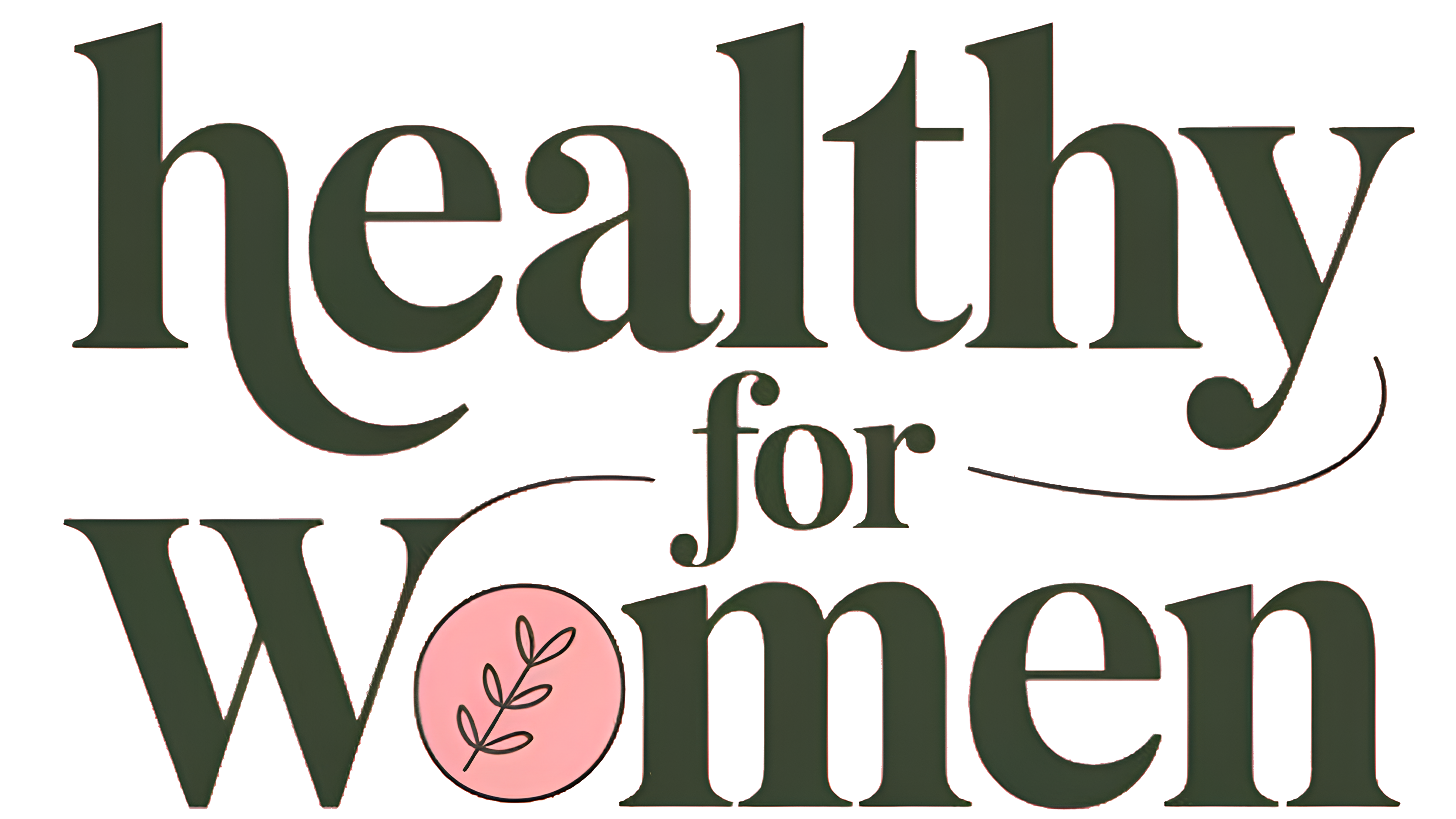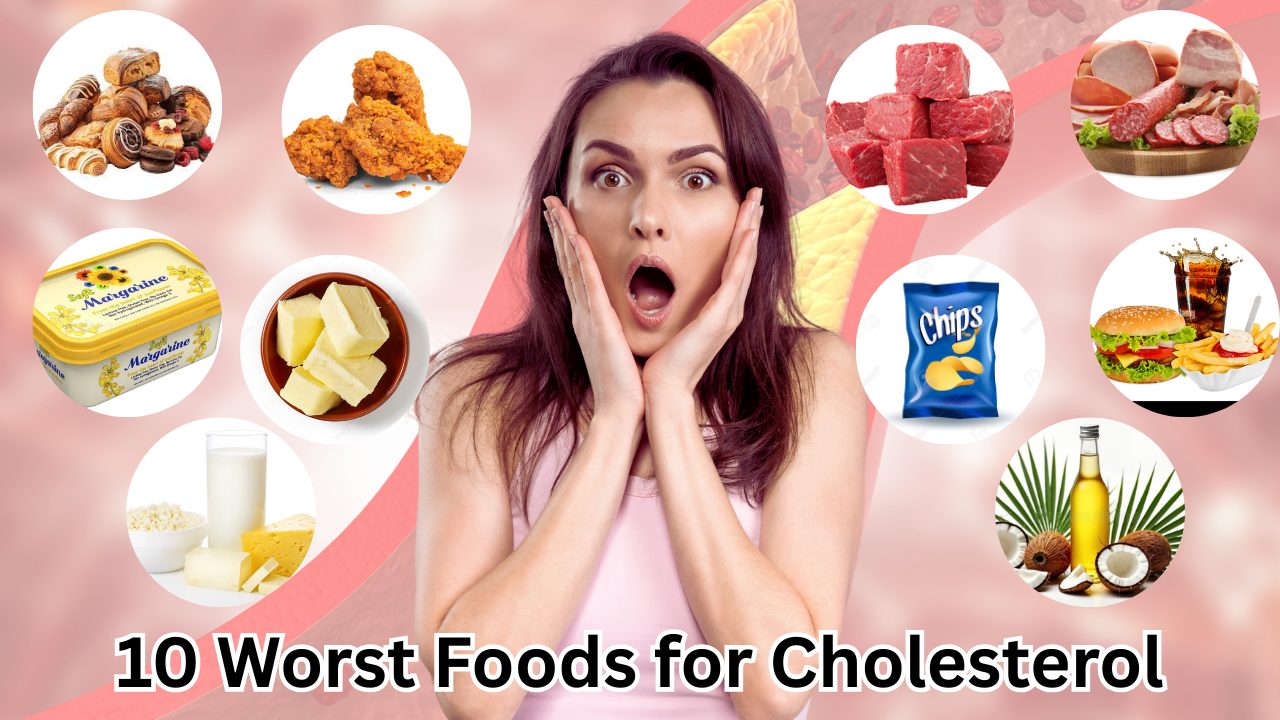Maintaining healthy cholesterol levels is crucial for preventing heart disease and ensuring overall cardiovascular well-being. While genetics and lifestyle factors play significant roles, dietary choices are among the most impactful decisions we can make to manage our cholesterol. Certain foods, often high in saturated fats, trans fats, and added sugars, can significantly raise cholesterol levels, putting us at risk for serious health complications. In this article, we’ll explore the 10 Worst Foods for Cholesterol, highlighting common culprits like fried foods, processed meats, and sugary treats that can wreak havoc on our heart health. By understanding which foods to limit or avoid, we can take proactive steps toward a healthier diet and a lower risk of heart disease.
What Is Cholesterol?
Cholesterol is a term widely recognized in health discussions, often linked to concerns about elevated levels and associated risks. However, truly appreciating the importance of maintaining balanced cholesterol requires a deeper understanding of its biological role and function.
Cholesterol is a vital substance found in the bloodstream, essential for the survival of both humans and animals. As explained by Dr. Bhattacharya, it acts as a structural component, forming protective membranes—similar to cellular envelopes—that encapsulate molecules and assist in their transportation throughout the body. While naturally necessary, modern lifestyles and diets frequently lead to excessive accumulation, shifting cholesterol from a life-sustaining element to a potential health hazard when unmanaged. Its primary function lies in enabling the safe movement of critical molecules, underscoring the delicate balance required for optimal health.
Why Is High Cholesterol Dangerous?
Elevated cholesterol levels, especially increased low-density lipoprotein (LDL) cholesterol, pose significant health risks by promoting atherosclerosis—the accumulation of plaques within arterial walls. This condition initiates when LDL cholesterol penetrates the arterial lining, becomes oxidized, and is engulfed by macrophages, forming lipid-rich foam cells. The progressive buildup of these cells leads to the development of atherosclerotic plaques, which consist of cholesterol, fatty substances, cellular debris, calcium, and fibrin.
As these plaques enlarge, they constrict the arteries, diminishing blood flow and the supply of oxygen and nutrients to essential organs. This restriction can result in severe cardiovascular conditions such as coronary heart disease, angina, carotid artery disease, and peripheral artery disease. Moreover, if a plaque ruptures, it can cause a blood clot, potentially leading to a heart attack or stroke, depending on where the blockage occurs.
The association between elevated LDL cholesterol and heightened cardiovascular risk is well-documented. Clinical studies have demonstrated that reducing LDL cholesterol through dietary changes or medications can markedly decrease the likelihood of cardiovascular events. Consequently, controlling LDL cholesterol is vital for preventing atherosclerosis progression and lowering the risk of cardiovascular diseases.
READ MORE: Easy Meal Prep Ideas For Weight Loss (High Protein)
Does High Cholesterol Cause Symptoms?
High cholesterol is often asymptomatic, meaning that individuals may not experience noticeable symptoms until serious complications arise. This silent nature of high cholesterol underscores the importance of regular blood tests to monitor cholesterol levels. Early detection allows for timely intervention, which can significantly reduce the risk of developing cardiovascular diseases.
Does High Cholesterol Cause Heart Attack or Stroke?
High cholesterol contributes to the buildup of plaque in arteries, a process known as atherosclerosis. When a plaque ruptures, it can block blood flow, leading to heart attacks or strokes. According to the World Health Organization (WHO), cardiovascular diseases are the leading cause of death globally, with high cholesterol being a major risk factor. In the United States alone, heart disease accounts for approximately one in every four deaths, with many of these cases linked to high cholesterol levels.
What Are the Worst Foods for Cholesterol?
10 Worst Foods for Cholesterol
Certain foods can significantly raise cholesterol levels due to their high content of saturated fats, trans fats, and cholesterol. Here are ten foods to avoid:
Fried Foods
Fried foods, such as french fries and fried chicken, contain trans fats from hydrogenated oils, which are particularly harmful to heart health.
Processed Meats
Processed meats like bacon, sausage, and deli meats are high in saturated fats, contributing to increased cholesterol levels.
Commercial Baked Goods
Commercial baked goods, including cookies and pastries, often contain trans fats, which can raise LDL cholesterol.
Fatty Red Meats
Fatty red meats, such as ribeye and ground beef, are high in saturated fats, which can increase cholesterol levels.
Full-Fat Dairy
Full-fat dairy products like cheese, cream, and butter are rich in saturated fats and cholesterol.
Fast Food
Fast food items, such as burgers and fries, are typically high in both trans and saturated fats.
Butter and Lard
Butter and lard are high in saturated fats, which can contribute to elevated cholesterol levels.
Margarine with Trans Fats
Stick margarine and shortening often contain trans fats, which are detrimental to heart health.
Palm Oil and Coconut Oil
While often considered healthier alternatives, palm oil and coconut oil are high in saturated fats, which can raise cholesterol levels.
Packaged Snacks
Packaged snacks like chips and crackers often contain trans fats, making them unhealthy choices for those managing cholesterol.
What Are the Best Foods to Lower High Cholesterol Naturally?
Fortunately, certain foods can help lower cholesterol levels naturally. These include:
- Soluble Fiber: Foods like oats, barley, and beans are rich in soluble fiber, which can help reduce LDL cholesterol.
- Omega-3 Fatty Acids: Found in salmon and walnuts, omega-3s support heart health by reducing inflammation.
- Plant Sterols: Plant sterols, found in fortified foods and some fruits and vegetables, can help lower LDL cholesterol.
- Fruits and Vegetables: A diet rich in fruits and vegetables provides essential nutrients and fiber, supporting overall heart health.
- Whole Grains: Whole grains, such as brown rice and quinoa, offer fiber and nutrients that can help manage cholesterol levels.
By incorporating these foods into your diet and avoiding those that raise cholesterol, you can take significant steps toward maintaining a healthy heart.
Are Eggs Bad for Cholesterol?
Eggs have long been a topic of debate in cholesterol discussions due to their high dietary cholesterol content (about 186 mg per large egg yolk). However, research and dietary guidelines have evolved, offering a more nuanced perspective.
The Debate Explained
- Dietary Cholesterol vs. Saturated Fat: While eggs are rich in cholesterol, they are low in saturated fat—the primary driver of elevated LDL (“bad” cholesterol). For most people, saturated and trans fats in foods like fried foods or processed meats have a far greater impact on blood cholesterol levels than dietary cholesterol itself.
- Mixed Study Results: Older studies linked egg consumption to heart disease risk, but newer research suggests moderate egg intake (up to 1 egg per day) does not significantly raise cholesterol or cardiovascular risk in healthy individuals. However, people with diabetes or existing high cholesterol may need to exercise caution, as some studies indicate a potential risk increase in these groups.
Current Guidelines
Major health organizations, including the American Heart Association (AHA) and Dietary Guidelines for Americans, emphasize moderation:
- Healthy Adults: Up to 1 whole egg daily is considered safe for most people, provided overall saturated fat intake remains low.
- High-Risk Groups: Those with diabetes, heart disease, or genetically high cholesterol (familial hypercholesterolemia) may benefit from limiting egg yolks to 3–4 per week and prioritizing egg whites or cholesterol-free substitutes.
Eggs’ Nutritional Benefits
Eggs are nutrient-dense, offering:
- High-quality protein.
- Vitamins B12, D, and choline (supports brain health).
- Antioxidants like lutein and zeaxanthin (promote eye health).
Practical Tips
- Pair eggs with fiber-rich foods (e.g., vegetables, whole grains) to balance meals.
- Avoid cooking eggs in butter or lard; opt for olive oil or non-stick pans.
- Monitor overall dietary patterns—prioritize reducing processed meats and fried foods over obsessing about eggs alone.
The Bottom Line
For most people, eggs can be part of a heart-healthy diet when consumed in moderation. Individual factors like genetics and health conditions matter, so consult a healthcare provider for personalized advice.
Conclusion:
In conclusion, managing high cholesterol requires a comprehensive approach that includes dietary changes, lifestyle adjustments, and professional guidance. Avoiding foods that are high in saturated fats, trans fats, and cholesterol is crucial for reducing the risk of cardiovascular diseases. By steering clear of harmful foods like fried foods, processed meats, and full-fat dairy products, individuals can significantly lower their LDL cholesterol levels and mitigate the risk of plaque buildup in arteries.
Adopting heart-healthy alternatives, such as soluble fiber-rich foods, omega-3 fatty acids, and plant sterols, can help naturally lower cholesterol levels. Incorporating a variety of fruits, vegetables, and whole grains into your diet provides essential nutrients and fiber, supporting overall heart health.
Consulting with healthcare providers is essential for receiving personalized advice tailored to your specific health needs. Regular blood tests can help monitor cholesterol levels, and healthcare professionals can offer guidance on dietary changes, lifestyle modifications, and, if necessary, medication to manage cholesterol effectively.
By combining these strategies—avoiding harmful foods, embracing heart-healthy alternatives, and seeking professional guidance—individuals can take proactive steps toward maintaining healthy cholesterol levels and reducing the risk of cardiovascular diseases. This proactive approach not only improves heart health but also enhances overall well-being, allowing individuals to live healthier, more fulfilling lives.

